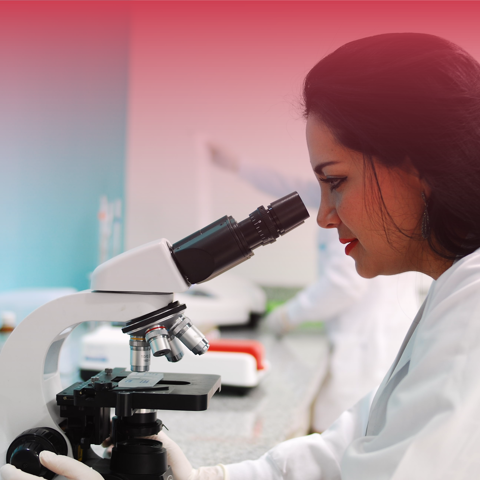
Funded Research
Our Research Funding
Our annual funding round is designed to support bright young researchers, as well as established institutions, as they strive to make the kind of life-changing breakthrough our diabetes community is hoping for.
Our first research award was made in 1999 for a small equipment grant and since that time, we have committed more than £13.5 million to diabetes research in the UK and as part of the International Diabetes Wellness Network, around the world.
To read more about our research strategy, click here.
2019

Pump Priming
Investigating the role of Viperin in beta cells as a mechanistic link between enteroviral infection and the development of type 1 diabetes
- Description - click here to read
-
We want to understand the role of Viperin, a protein that the body makes as part of the immune response to viral infection, in the development of type 1 diabetes (T1D). As viral infection of the insulin-producing pancreatic beta cells has been linked to the onset of T1D, we want to understand if Viperin plays a role in this process. This knowledge may enable the development of drugs/treatments to prevent or intervene early in the disease, potentially avoiding many of the severe complications of T1D such as diabetic ketoacidosis. In particular, we want to find out: 1) How much Viperin people with recent-onset T1D have in their pancreas. 2) How much Viperin there is in a human pancreatic beta cell model (cell line maintained in a test tube) infected with virus (like a person developing T1D). 3) The role played by Viperin in beta cell dysfunction and death, using cell models relevant to T1D (cells infected with virus or exposed to proteins called cytokines produced by the immune system).
2019

Pump Priming
A James Lind Alliance Priority Setting Partnership to define the research priorities in diabetes and pregnancy
- Description - click here to read
-
Diabetes affects over 5% of all women giving birth in the UK. It increases the risk of complications during pregnancy and birth for the mother and her baby, and can also affect them in the long-term. More research is needed to help provide the best health care for women with or at risk of diabetes, who are planning or are pregnant. This project aims to help direct the research which is done in diabetes and pregnancy towards addressing the areas which are considered most important by the people impacted by it. Over approximately 12-18 months we will work with women and their families affected by diabetes in pregnancy, and health care professionals, to identify where little is known, or there are uncertainties about, the effects of treatments and health care in diabetes and pregnancy. A top ten list of priority research questions will be jointly agreed and shared with the public and research funders. Where possible, research projects will be developed and submitted for funding.
2019

Pump Priming
Defining the role of chemokine receptor CCR9 in islet function: potential for therapeutic intervention in type 2 diabetes
- Description - click here to read
-
Type 2 diabetes (T2D) occurs when blood sugar (glucose) levels are too high because the specialised islet beta-cells do not release enough insulin, or insulin does not work properly. T2D can be treated by drugs that stimulate insulin secretion but some patients cannot properly regulate their glucose levels using these therapies and may suffer from side effects. Some chemicals regulate beta-cell health and function by binding to "receptor" proteins. We know that obesity stresses beta-cells and we have identified that islet cells from obese organ donors show alterations in the amounts of particular receptors that they contain. We are particularly interested in a receptor called CCR9, which is nearly 100-times more abundant in islets from obese donors than islets from normal weight donors. In this small project we will investigate whether this increase in CCR9 has a protective function or is involved in the beta-cell damage associated with obesity. This study will therefore provide essential feasibility information for further development of drugs targeting CCR9 to treat T2D.
2019

Pump Priming
RNA binding proteins (RBP) and insulin secretion: an unexplored area of diabetes research
- Description - click here to read
-
Specialised cells called beta-cells make and release the hormone insulin which reduces the levels of sugar in the blood. Diabetes occurs when these cells fail to secrete enough insulin leading to raised blood sugar. We have discovered, in beta cells, a new set of proteins that we have named ‘secretory RBPs’. We believe that these novel proteins play a vital role in making and releasing insulin and may play an important role in causing the beta cells to ‘fail’. With the generous support of the DWRF we wish to follow up this exciting discovery to find out more about the role of these secretory-RBPs’ in beta cells. This will lead to a better understanding of how the insulin is made and released and what causes the beta cell to stop working as it does in people with diabetes. We anticipate that the results of the project will ultimately lead to the development of new treatments for the prevention and management of diabetes.
2019

Pump Priming
Towards remission of type 2 diabetes without weight loss
- Description - click here to read
-
Significant weight loss (>10kg) can help a large majority of people to come off their medications and achieve remission of their type 2 diabetes. However, for many people, weight loss might not be possible or desired. Promising studies show that low-carbohydrate diets can reduce blood sugar to the level of someone without type 2 diabetes without any weight loss. However, these low-carbohydrate diets also included a lot of high-protein foods. Protein might help the pancreas produce more insulin. Therefore it is not clear whether carbohydrate restriction alone is enough to normalise blood sugar. This study will test the effect of changing the amount of protein in the diet while people are on a low-carbohydrate diet in people with and without type 2 diabetes. We will increase and decrease the protein in random order but keep the carbohydrate intake unchanged to see what happens to blood sugar levels. This will tell us if added protein is specifically needed for carbohydrate restriction to lower blood sugar in people with type 2 diabetes.
2019

Pump Priming
Uncovering novel, rare genetic causes of type 2 diabetes in people of Bangladeshi and Pakistani heritage participating in East London Genes and Health
- Description - click here to read
-
We aim to investigate new genetic causes of type 2 diabetes (T2D) in people of Bangladeshi and Pakistani heritage, who have been recruited to a community genomics study called East London Genes and Health (ELGH). ELGH is investigating the cause of diseases, e.g. T2D, which disproportionately affect people of this heritage and yet are under-researched, and has involved 30,000 volunteers so far. Preliminary work has identified people with specific, and rare, gene changes that might predispose, or protect, them from T2D. We would now like to invite approximately 100 people with and without these gene changes to participate in more detailed studies to investigate the effect of these gene changes on their health. These studies will include a detailed assessment of their medical and family history, a physical examination and fasting blood sample. Information obtained from these volunteers will be used to perform additional laboratory tests (e.g. measurement of blood glucose, lipid levels, and DNA studies) to investigate if, and how, these gene variants might be linked to disease.
Donate Today
I would like to make a regular donation of
I would like to make a single donation of